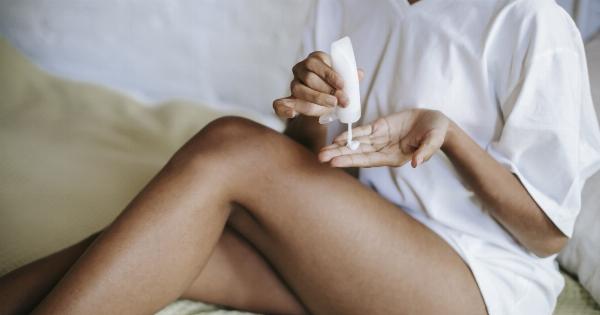Hangovers are the unpleasant aftermath of consuming excessive amounts of alcohol. We’ve all experienced the pounding headache, nausea, and fatigue that often accompany a night of heavy drinking.
However, there are numerous myths and misconceptions surrounding hangovers that can lead to confusion about their causes and potential remedies. In this article, we will debunk some common myths and explore the facts behind hangovers, helping you understand and manage these dreaded post-party symptoms.
Myth #1: Clear Alcohol Doesn’t Cause Hangovers
Many people believe that clear alcoholic beverages, such as vodka or gin, are less likely to cause hangovers compared to darker options like whiskey or red wine. However, this is nothing more than a myth.
The truth is, the alcohol itself is the primary culprit behind hangovers, regardless of its color or type. Hangovers occur due to the toxic effects of alcohol on the body, not because of any additional compounds present in specific beverages.
Myth #2: Mixing Different Types of Alcohol Causes Worse Hangovers
Have you ever heard the saying, “beer before liquor, never been sicker; liquor before beer, you’re in the clear”? This popular belief suggests that mixing different types of alcohol leads to more severe hangovers.
However, the order in which you consume alcoholic beverages has no impact on the intensity of your hangover. What matters is the total amount of alcohol you consume, not the sequence or combination of different drinks.
Myth #3: Drinking Water Before Bed Prevents Hangovers
One common piece of advice for avoiding hangovers is to drink plenty of water before going to bed after a night of drinking. While staying hydrated is undoubtedly important and can help alleviate some symptoms, it does not completely prevent a hangover.
Alcohol causes dehydration and acts as a diuretic, increasing urine production and fluid loss. Drinking water helps with rehydration but does not eliminate the toxic effects of alcohol on your body.
Myth #4: Hangovers Are Only Caused by Excessive Drinking
While it’s true that consuming large quantities of alcohol is the main cause of hangovers, even moderate drinking can lead to these unpleasant symptoms.
The severity of a hangover depends on various factors, including your tolerance, the quality of alcohol consumed, and individual differences. Some people may experience hangover-like symptoms even after a few drinks, indicating that even moderate alcohol intake can trigger these effects.
Myth #5: Greasy Foods Cure Hangovers
It’s a popular belief that indulging in greasy, fatty foods like burgers or pizza can cure a hangover. Unfortunately, there is no scientific evidence to support this claim.
While a hearty breakfast may temporarily satisfy your hunger and make you feel better, it does not address the underlying causes of a hangover. Additionally, consuming greasy foods on an upset stomach can potentially worsen your symptoms and lead to indigestion.
Myth #6: Coffee Alleviates Hangover Symptoms
Many people turn to a cup of strong coffee in the morning to combat hangover symptoms and feel more alert. However, caffeine is a diuretic, just like alcohol, which can further dehydrate your body.
Drinking coffee may provide temporary relief by reducing fatigue, but it does not cure or significantly improve a hangover. If you choose to consume coffee, it’s essential to balance it with drinking plenty of water to avoid exacerbating dehydration.
Myth #7: Hangovers Can Be Sweated Out
Some individuals believe that exercising or spending time in a sauna can help sweat out the alcohol and relieve hangover symptoms. However, this notion is nothing more than a myth.
While light exercise can increase blood flow and release endorphins, which may provide temporary relief, it does not speed up alcohol metabolism or remove it from your system any faster.
Myth #8: Taking Painkillers Before Bed Prevents Hangovers
Taking painkillers before going to bed after a night of heavy drinking is a common strategy believed to prevent hangovers. While painkillers can provide temporary relief from headache or body pain, they do not address the root cause of hangovers.
Combining alcohol with certain pain medications, such as acetaminophen, can also be harmful to the liver. It’s best to avoid self-medication and allow your body to naturally recover from the effects of alcohol.
Myth #9: Hangovers Are the Same for Everyone
Hangovers can vary significantly from person to person. Factors such as age, weight, overall health, and individual metabolism influence how your body reacts to alcohol and the severity of hangover symptoms.
Some individuals may experience more intense hangovers than others even after consuming the same amount of alcohol. It’s essential to listen to your body and recognize your limits to avoid unpleasant hangover experiences.
Myth #10: There’s a Universal Hangover Cure
The ultimate hangover cure remains elusive. While numerous products and remedies claim to alleviate hangover symptoms, there is no scientifically proven universal solution.
The only guaranteed ways to prevent a hangover are to drink in moderation or avoid alcohol altogether. Remember to stay hydrated, consume food before and during alcohol consumption, and allow your body ample time to recover after a night of drinking to minimize the severity of a hangover.































